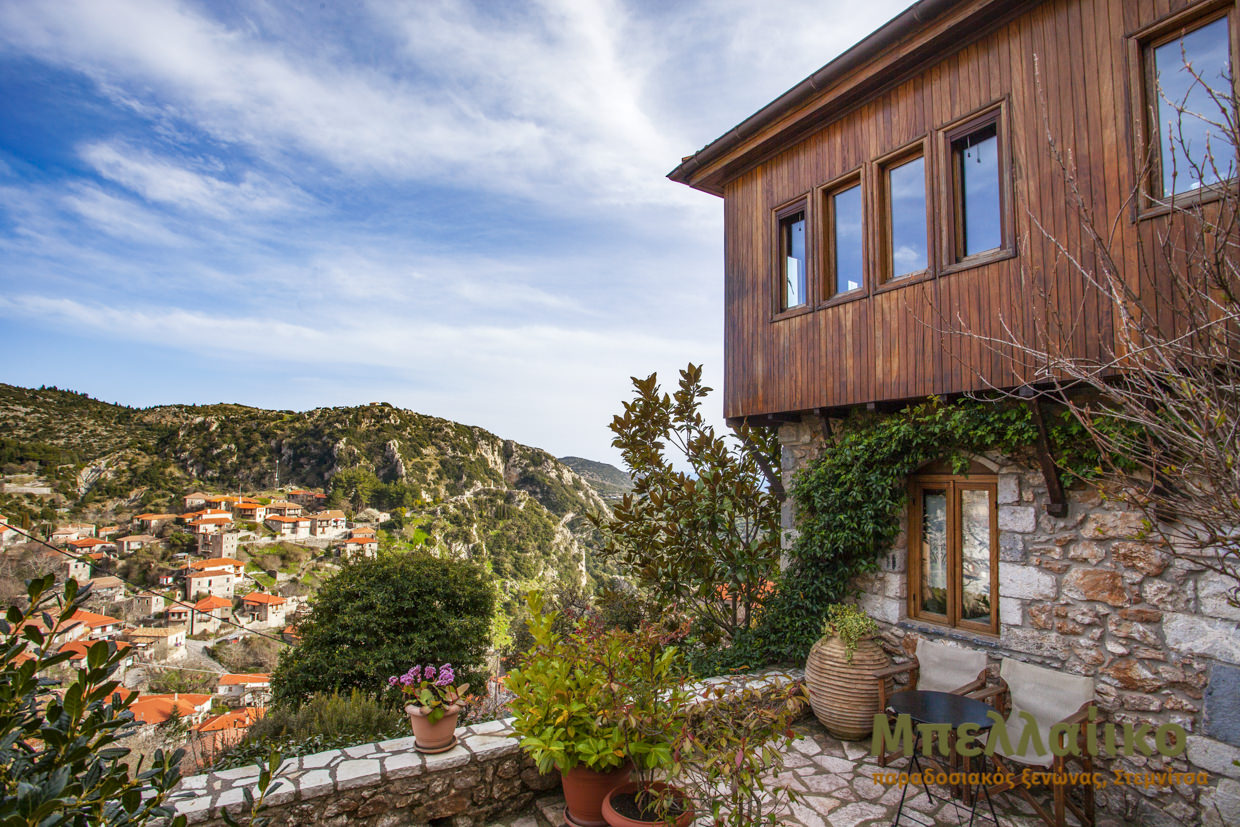Access to Stemnitsa
Three different roads lead to the square of Stemnitsa, which is build at 1100 meters above the sea level.
The first, from Tripoli through Levidi, Vytina and Dimitsana. The second turns from Vytina to Pyrgaki and Elati through the beautiful fir – tree mythical forest of Mainalon, a monument of nature’s civilization. Distance: half an hour by car. The third road from Tripoli to Chrysovitsi through the rich forest with 71 hill tops covered with trees. The Mainalon forest embellishes Stemnitsa for many centuries like a lady – queen of mountainous Arcadia. The mythical home of the god Pan, memory of life’s holiday. Read
Stemnitsa region
The three towns of mountainous Arcadia, Stemnitsa, Karitena, Dimitsana reflect the architecture, city planning, geography and history, ornaments of the Peloponnese, a dowry of post – Byzantine folkloric culture. The Stemnitsa region is full of important monuments: the holy remnants of ancient Gortyna, 400 b.C., the Monastery of Fhilosophos 930 b.C., Saint John the Prodromosbuild on a prominent place listens to the musical echoes of mythical river Lousios. The Meteors of the Peloponnese. To the north is the elegant and hospitable Monastery of Aimialon. And all are covered by the star – embroidered veil of life of the immense forest. One surprise after another. And the entire 9 km way from Stemnitsa to Dimitsana is unrivaled. It constitutes the same landscape as Delphi and even better.

Midway one meets the Metohi of Saint Dimitris, where crystal clear waters flow all year round from the stone curved fountains.
Stemnitsa’s name emanate from Slavic toponym, meaning a closed forest place. Stemnitsa’s official name is Ypsous, daughter of Ypsounta, one of the 50 children of Arkas, land of all ancient gods and mythical heroes of the world. The original motherland of Hermes, Zalefkos and Athena, and accordihg to mythology they comprised spiritual personalities in numerous transfigurations. Children of an ancient people, the Hellenes, gifted with a keen sentimental versatility. It was mere accident that I saw a small hand – written sign: “the Mpelleiko”, an old stone – made house with marvelous and immense view. Its name derives from its owner whose name was Mpellas. No one suspects the miraculous secret hostel, right above the central road of Stemnitsa, only 300 meters away. It is fascinating place of divine beauty, a real dreamland of human hand shaking. Its source: man’s intelligent poetic instinct. Around and in front of it the immense horizons flow with musical harmony. Across it, the Lykaion Mountain. In the distance to the left: pet mountain Taygetos and to the right the Ionian Sea with Zakynthos in the back.
All the spectacles mirror poetic prayers of prudence and are bathed in secret whispers of the soul. A step further up, you travel with the clouds holding under your arms the moon of a night full of stars. An endless dream! Every room has its fire place for winter time. Grandmother’s hand – made neat sheets and the colored blankets offer a genuinely archaic esthetic movement. All windows look at the open horizons of unrivalled landscape and the fir trees stand proud in their epic loneliness. For breakfast, home – made products with tastes, that emanate from the memories of tradition. As for the cost of the room, it is reasonable, showing respect for the visitor.

 Greek
Greek Deutsch
Deutsch Français
Français


